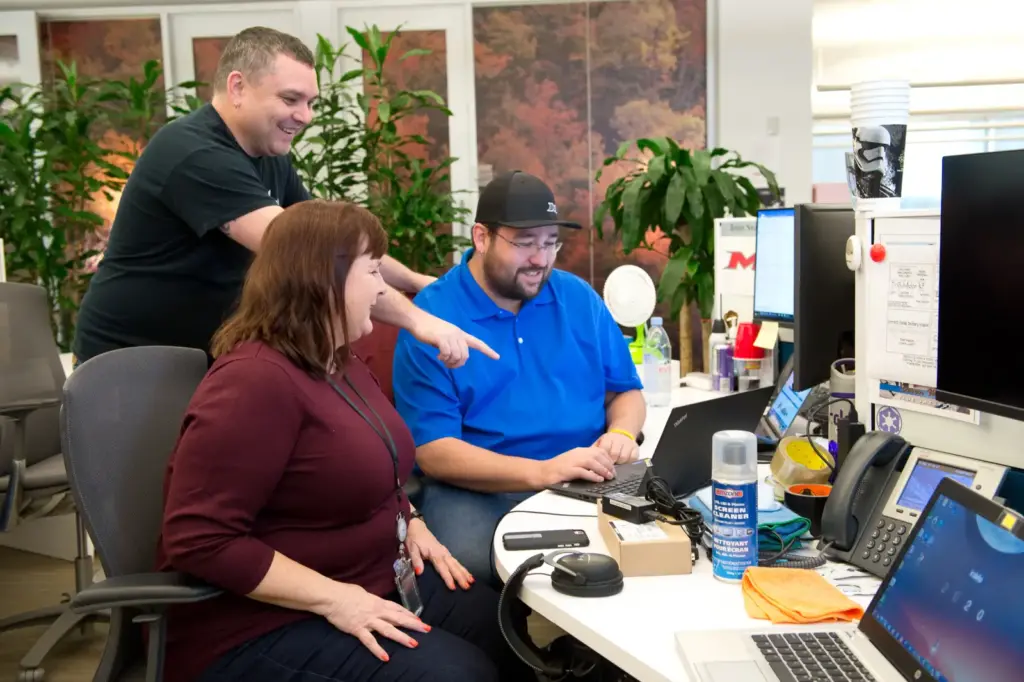
No matter how strong the firewall or how complicated the encryption, few firms would be willing to bet that their cybersecurity protections are completely impenetrable.
Containing those inevitable breaches is where Irdeto’s made-in-Kanata technology, Cloakware, makes its impact.
The firm specializes in protecting software in “hostile environments” – specifically, once a hacker bypasses the first layer of defence.
“When somebody breaks into a system, we’re there to prevent them from going any further and doing any damage,” says Stacy Janes, Irdeto’s chief security architect of connected transport.
Cloakware was founded in 1997 by former Nortel engineers Harold Johnson and Yuan Gu, who developed cybersecurity solutions based on “software obfuscation” – deliberately making code harder to understand and hindering hackers’ reverse engineering efforts.
Irdeto, a cybersecurity firm headquartered in the Netherlands, began to license Cloakware’s software solution in the early 2000s to help media companies safeguard their content.
In 2007, Irdeto acquired Cloakware.
“We very quickly saw that there are other opportunities outside of media because software protection can be applied in many different markets and fields,” says Jaco du Plooy, vice-president of engineering, who has worked at Irdeto for more than two decades.
Now firmly entrenched in Kanata North, Irdeto’s Cloakware is tapping into the rapidly growing Internet of Things market and helping to safeguard systems in which a cyberattack has the potential to be a life-or-death scenario.
Autonomous vehicles
As research and development of self-driving vehicles accelerates, the importance of safeguarding this emerging technology increases.
Malware that infects a vehicle’s engine control unit could render it inoperable or, even worse, present a safety risk if the steering or braking systems were disabled, for example.
Cloakware’s technology protects user data and blocks malicious attempts to install unauthorized software or modify existing applications.
Janes says his company’s forecasts point to growing connectivity across the automotive industry in the coming years. This is leading Janes and his team to take a collaborative approach and conduct threat assessments for OEMs and suppliers to help them understand how they can address vulnerabilities as they engineer products.
“Security is constantly changing, and it’s our job to stay on top of that and take that worry away from our customers,” Janes says.
To demonstrate the company’s solutions, Irdeto has parked a connected car simulator inside its Solandt Road office.
It allows a driver to experience what it’s like to lose control of an unsecured vehicle if, for example, a hacker disables a car’s braking system.

In contrast, the driver can also experience what it’s like to be behind the wheel of a vehicle protected by Cloakware.
“I still maintain complete control,” Janes says during a demonstration. “We heal the code, prevent the attack and then notify the OEM of what’s going on.”
He adds that security solutions are a key step towards widespread adoption of autonomous vehicles.
“Taking the steering wheel away from somebody is going to be a big enough of a change,” Janes says. “We want to make sure they feel safe and they don’t think an attacker is going to take over.”
Rich environment
Irdeto’s Kanata location has helped fuel its expansion into securing connected vehicles.
“We started out on focusing on the areas where the OEMs live – so Munich, Detroit, Tokyo,” Janes says. “It took us a little while to realize how rich of an environment we actually had in our own backyard.”
He adds that they have a strong partnership with QNX, aided by that firm’s close proximity in Kanata.

Du Plooy says that the company also benefits from its ability to access the region’s skilled workforce as well as tapping Carleton University and the University of Ottawa for up-and-coming talent through co-ops.
“The talent is great in this area,” he says. “It’s really helped Cloakware grow to where it is today.”
